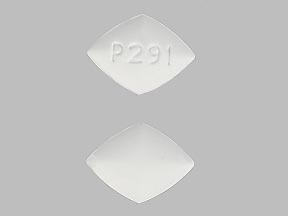
Amiloride Coupons & Savings Card – Discount Prices from $15.32
Amiloride is a medication primarily used alongside other diuretics, such as furosemide or hydrochlorothiazide, to manage high blood pressure, heart failure, and fluid retention (edema). Its unique function is to prevent low potassium levels in the blood, a common side effect when using other diuretics. Amiloride is classified as a potassium-sparing diuretic. It operates in the kidneys to eliminate excess salt and water from the body while maintaining potassium balance. This mechanism helps in reducing blood pressure and decreasing fluid accumulation, ultimately aiding in the prevention of strokes, heart attacks, and kidney issues. The medication is commonly available in tablet form and should be taken orally once a day with food. Potential side effects may include headache, nausea, and loss of appetite. Though available generically, the brand name Midamor is no longer marketed. Always consult a healthcare professional before starting any new medication regimen.
Our coupons are free to use. Before paying, show the pharmacist your Amiloride savings card to get your free discount. Use our filters below to edit the prescription box to match your needs. The Amiloride prices will update based on your prescription needs. Above our Amiloride coupons, you can change your location to see pharmacy prices and costs in other areas. We're here to help you buy Amiloride at the lowest price with our prescription discount card.
My prescription
Edit
5MG, Amiloride (90 Tablets)
Select pharmacy

CVS
$46.33
COUPON PRICE
Walgreens
$15.32
COUPON PRICE
Albertsons
$23.24
COUPON PRICE
Walmart
$25.13
COUPON PRICEAmiloride savings card
Show this card to your pharmacist
Walgreens
$15.32
BIN
ID
PCN
GRP
011867
LH90152D36
HT
LABH001
Powered by
Amiloride is a medication primarily used alongside other diuretics, such as furosemide or hydrochlorothiazide, to manage high blood pressure, heart failure, and fluid retention (edema). Its unique function is to prevent low potassium levels in the blood, a common side effect when using other diuretics. Amiloride is classified as a potassium-sparing diuretic. It operates in the kidneys to eliminate excess salt and water from the body while maintaining potassium balance. This mechanism helps in reducing blood pressure and decreasing fluid accumulation, ultimately aiding in the prevention of strokes, heart attacks, and kidney issues. The medication is commonly available in tablet form and should be taken orally once a day with food. Potential side effects may include headache, nausea, and loss of appetite. Though available generically, the brand name Midamor is no longer marketed. Always consult a healthcare professional before starting any new medication regimen.
Our coupons are free to use. Before paying, show the pharmacist your Amiloride savings card to get your free discount. Use our filters below to edit the prescription box to match your needs. The Amiloride prices will update based on your prescription needs. Above our Amiloride coupons, you can change your location to see pharmacy prices and costs in other areas. We're here to help you buy Amiloride at the lowest price with our prescription discount card.
More prescriptions for hypertension
coupons from$39.26Save 91%
coupons from$17.71Save 92%
coupons from$7.02Save 91%
coupons from$18.60Save 74%
coupons from$66.15Save 38%
coupons from$11.75Save 81%
coupons from$22.48Save 75%
coupons from$9.34Save 72%
More prescriptions for hypertension
Corgard Save 91%coupons from $39.26
Nifedipine ER Save 92%coupons from $17.71
Quinapril Save 91%coupons from $7.02
Spironolactone Save 74%coupons from $18.60
Acebutolol Save 38%coupons from $66.15
Benazepril-hydrochlorothiazide Save 81%coupons from $11.75
Enalapril-hydrochlorothiazide Save 75%coupons from $22.48
Amlodipine Save 72%coupons from $9.34
Amiloride dosage forms
Use our Amiloride 5MG coupon with prices from $25.76 for 90 Tablets. You can also use our Amiloride 5MG coupon with prices from $27.62 for 100 Tablets. We have a Amiloride 5MG coupon with prices from $214.48 for 1000 Tablets.
Dosage Quantity Price from Per unit 5MG 90 Tablets $25.76 $0.29 5MG 100 Tablets $27.62 $0.28 5MG 1000 Tablets $214.48 $0.21
| Dosage | Quantity | Price from | Per unit |
|---|---|---|---|
| 5MG | 90 Tablets | $25.76 | $0.29 |
| 5MG | 100 Tablets | $27.62 | $0.28 |
| 5MG | 1000 Tablets | $214.48 | $0.21 |
